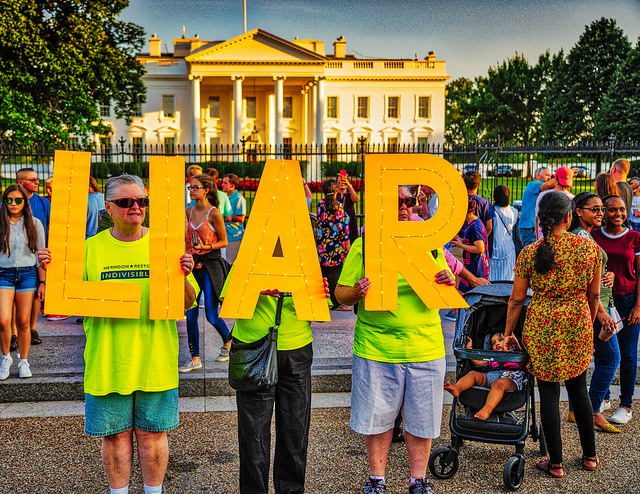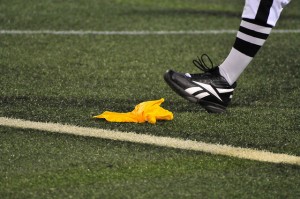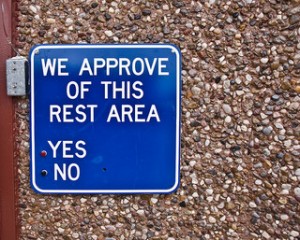
Vox writer Zack Beauchamp, among many other cultural critics and journalists, became “obsessed” with the question of why Kavanaugh supporters appear unfazed by potentially false claims during his testimony before the Senate Judiciary Committee. Beauchamp’s article on the subject relied extensively upon an American Sociological Review article (and an extensive tweet thread from one of the authors) to explain why this might be the case.
According to research from Oliver Hahl, Minjae Kim, and Ezra Zuckerman-Sivan, voters can recognize that a politician is lying but still consider them authentic. Their study includes analysis of President Trump’s claim during the 2016 campaign that global warming is a hoax developed by China, which most of the participants labeled as “highly false.” The authors found that,
“Trump voters were significantly more likely to justify the lie as a form of symbolic protest…[and they were] much more likely to think the statement ‘was his way of challenging the elite establishment’ than to see the statement as true.”
To test these findings further, Hahl and colleagues conducted an experiment that involved a simulated college election where the main issue was the imposition of a campus alcohol ban (which would threaten campus traditions). Participants who were assigned the traditionalist group and led to believe that the establishment was treating them unfairly supported a candidate who used clearly false data because they viewed the candidate as speaking toward a deeper truth. As demonstrated by the research, the election, and Kavanaugh’s hearings, there must be some sort of legitimacy crisis — either a corrupt establishment or unfair favoring of an upstart group — in order to set up an environment where lies resonate with a sense of truth for an aggrieved group. Beauchamp expands further,
“As with Trump, the deeper truth is that a particular group is treated unfairly by the establishment (recall Kavanaugh’s opening),” Zuckerman-Sivan wrote in a Twitter thread. “So long as the obvious lies can be framed as serving that larger truth, the liar can present himself as the group’s ‘authentic champion.’”
Importantly, Hahl and colleagues find that individuals from all across the political spectrum were susceptible to “the appeal of the lying demagogue” — making lies in search of a larger truth a more common occurrence than just in the last election.


